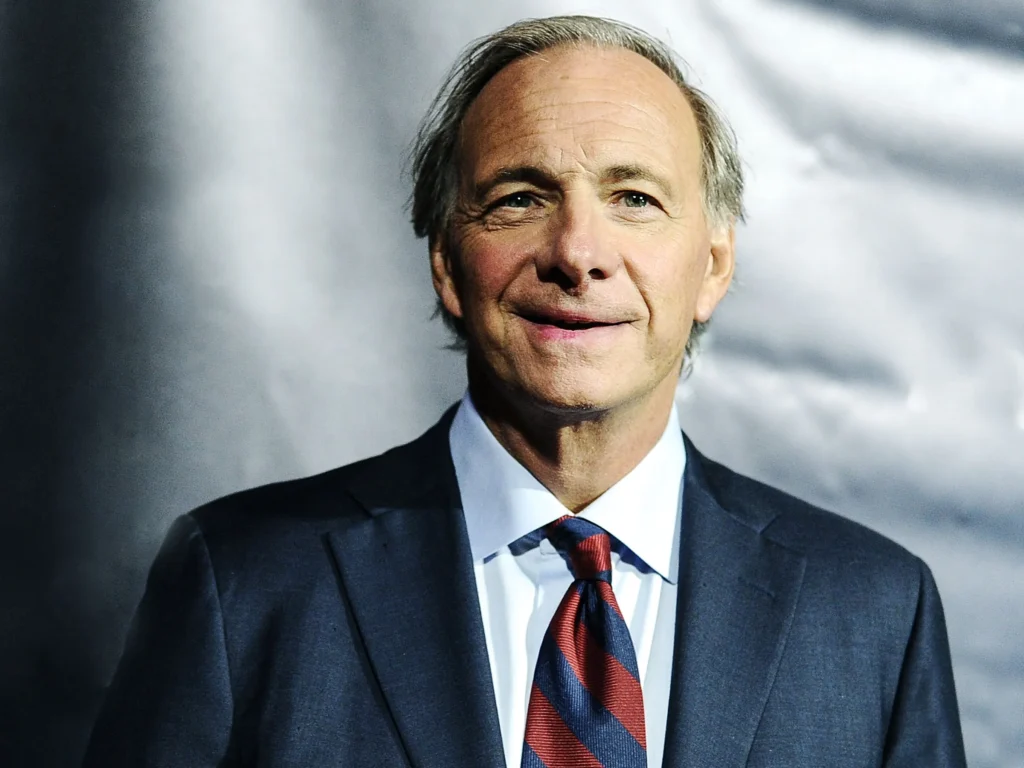Ray Dalio

Ray Dalio is one of the most successful hedge fund managers in history, renowned for his principles-based approach to investing and management. As the founder of Bridgewater Associates, the world’s largest hedge fund, Dalio has become a significant figure in finance and economics. His unique perspective on markets, his radical transparency within his firm, and his dedication to sharing the lessons he’s learned throughout his career have cemented his legacy as both an innovator and a thought leader.
Early Life and Education
Ray Dalio was born in 1949 in Queens, New York. His father was a jazz musician, and his mother was a homemaker. Dalio’s interest in investing started early—he bought his first stock at the age of 12, investing in Northeast Airlines. By the time he graduated from high school, he was already fascinated by markets.
Dalio earned his bachelor’s degree in finance from Long Island University and later attended Harvard Business School, where he earned his MBA in 1973. His academic background laid the groundwork for his financial career, but it was his practical experience and curiosity about how the world works that would shape his success.
Founding Bridgewater Associates
In 1975, after working briefly on Wall Street, Dalio founded Bridgewater Associates out of his two-bedroom apartment. His goal was to build an investment firm that was different from the rest—focused on long-term, macroeconomic trends and grounded in deep research and analysis. Over time, Bridgewater grew into a behemoth, managing over $150 billion in assets.
Dalio’s investment philosophy is based on understanding the “big picture” by analyzing economies, currencies, and geopolitical trends. He developed a unique model called “Pure Alpha”, which aims to generate returns by diversifying across asset classes and regions, while hedging risks. Bridgewater’s success has been largely driven by this diversified approach, allowing the firm to perform well even during times of economic uncertainty, such as the 2008 financial crisis.
Radical Transparency and Organizational Culture
One of the most notable aspects of Dalio’s management style is his commitment to radical transparency and meritocracy within Bridgewater. He believes that the best ideas should win, regardless of hierarchy. To foster this environment, he implemented practices like recording all meetings and encouraging employees to openly challenge one another’s ideas. This culture, while controversial, has been credited with helping Bridgewater consistently deliver strong results.
Dalio’s approach to management is outlined in his book Principles, which has become a bestseller. In it, Dalio shares the core principles that have guided his life, both personally and professionally. These include embracing reality and dealing with it, learning from mistakes, and being radically open-minded. Dalio argues that success comes from continuous learning and evolution, principles that have shaped Bridgewater’s longevity and adaptability.
Economic Insights and Market Philosophy
Ray Dalio is known for his deep understanding of macroeconomics and global markets. He has written extensively on the subject, particularly on the importance of understanding economic cycles. His concept of the “Debt Cycle” has been influential in explaining how economies move through periods of growth and recession, driven by borrowing and deleveraging.
Dalio also emphasizes the importance of diversification. His view is that no one can predict the future with certainty, so it’s essential to spread investments across different asset classes and regions to minimize risk. His investment approach is often described as “risk parity,” meaning that risk, not capital, should be the primary factor in determining portfolio allocations.
Philanthropy and Thought Leadership
In addition to his success in finance, Dalio has also become a prominent philanthropist and thought leader. He and his wife Barbara founded the Dalio Foundation, which focuses on education, healthcare, and ocean exploration. The foundation has donated hundreds of millions of dollars to various causes, reflecting Dalio’s belief in using his wealth to make a positive impact on society.
Dalio has also become an outspoken advocate for addressing wealth inequality, a topic he frequently discusses in his writings and public appearances. He believes that the growing gap between the rich and the poor poses a significant threat to social and economic stability and calls for reforms to ensure more equitable opportunities.
Conclusion
Ray Dalio’s journey from a young investor to the head of the world’s largest hedge fund is a testament to his principles-driven approach and deep understanding of global markets. His emphasis on radical transparency, continuous learning, and diversification has made Bridgewater Associates a standout in the financial world. Through his writing and philanthropy, Dalio continues to share his insights with the world, influencing both the investment community and broader societal discussions on economics and inequality. His legacy is not just one of financial success but of profound thought leadership and a commitment to making a lasting positive impact.
